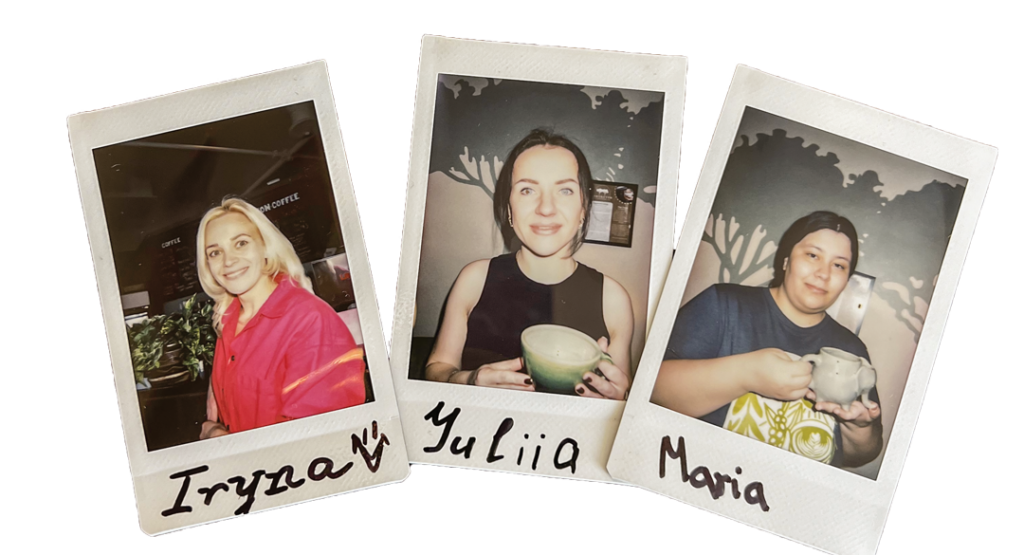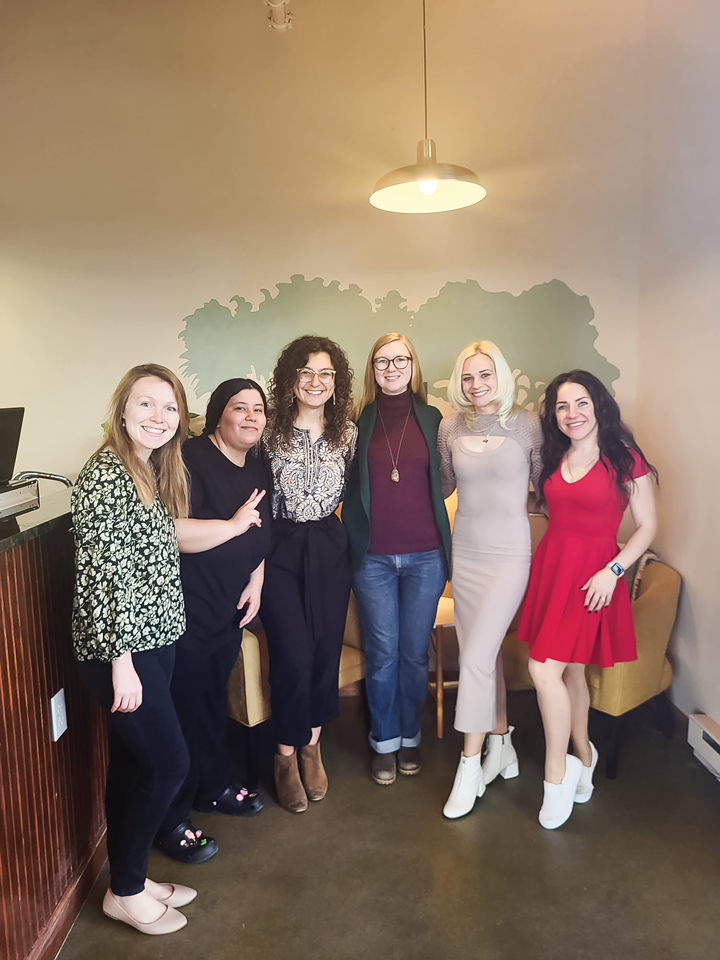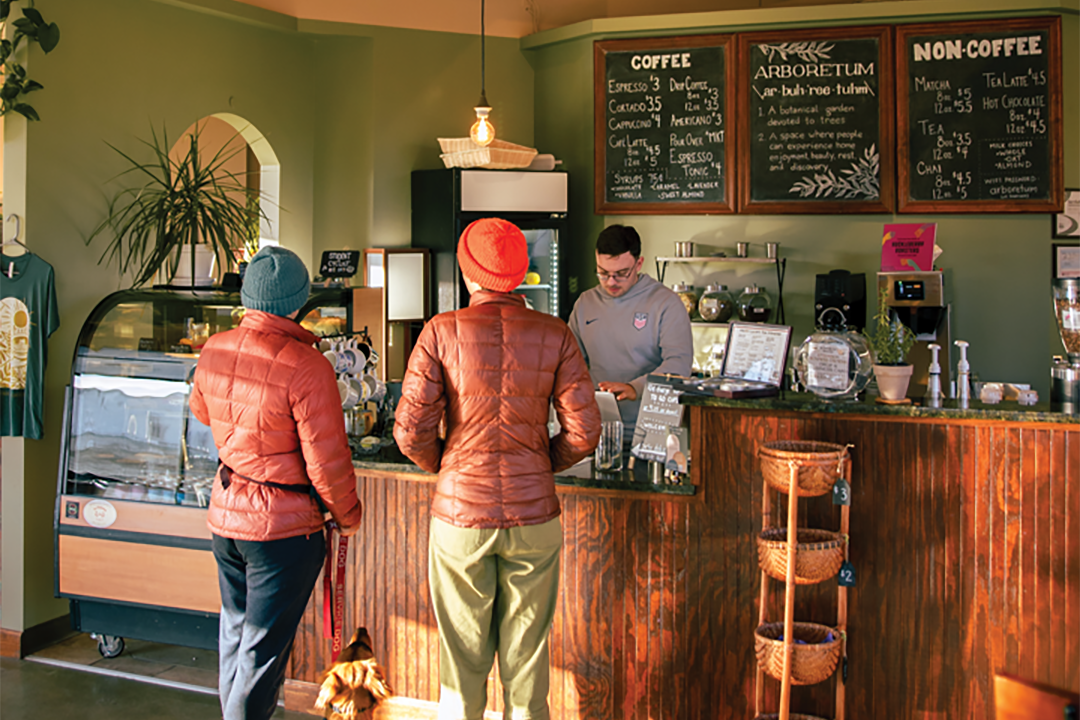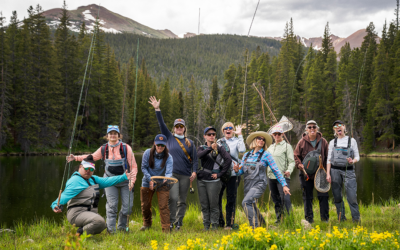With its comfy couches, cute decor, cafe lattes and community feel, Arboretum Coffee resembles any other local coffee place in Fort Collins. That frustrates the owner, Hannah Norris.
Arboretum is a coffee house, says Norris, 26, but it’s also a nonprofit with a mission to solve some of the frustrations she felt as a social worker. She wants more people to know what her apprentices go through, and she needs their support and donations to keep the shop going.
Her apprentices—her only front-line workers—are refugees, three from Ukraine and one from Venezuela. Norris started Arboretum to not only give refugees what she believes is meaningful employment, but a way to move beyond it.
Norris’ biggest frustration as a social worker was the way refugees were sucked into what she calls “undesirable” jobs with no way to learn skills that would help them leave. Refugees come to the U.S. without much money or many possessions, Norris says, and, as a result, they typically work long hours at strange times in jobs that don’t offer much opportunity for growth.
“They need employment right away,” Norris says, “and the places that match their skills are rarely places where people can grow. They have to pick between making a living or learning English and other skills to advance their career.”

Norris acknowledges that a job as a barista has its limitations, too, but she also offers a series of classes taught by her, a few business leaders and volunteers on the topics of customer service, financial literacy and career preparation, along with English as a Second Language. The point, she says, is they can move on from the entry-level job she gives them after their year-long employment is over. Advocates believe in what she’s doing: Two of her four apprentices were referred by the Immigrant and Refugee Center of Northern Colorado in Evans.
“They’re learning foundational skills,” Norris says. “They’re learning about professionalism and making connections.”
Working behind Arboretum’s counters offers a chance to learn valuable skills in America’s workplace culture, food safety and “brewology,” including latte art. It also allows refugees to practice English in a safe environment—Norris and her workers enjoy teasing each other for mispronouncing the names of their customers—and, most importantly, Norris says, it gives them a chance to lead.
Her workers rotate every week as shift leaders, and after six months, they’ll mentor a new pod of apprentices for their final six months. Norris opened Arboretum in January and leaned on volunteers, many of whom were experienced baristas, to help her first crew learn how to run a coffee shop. She thinks it will go smoother in July, when her second crew arrives and will have the help of the first pod.
The fun part, Norris says, is that her apprentices aren’t just learning about America’s culture. They’re learning about each other’s.

Jessy Metzger, program manager; Maria Guevara, apprentice; Hannah Norris, executive director and founder; Nina Forsyth, shop manager; Iryna Sushko, apprentice; Yuliia Ovchynnykova, apprentice
“Usually there are several different languages spoken here,” Norris says, “which is really sweet.”
She even pairs her apprentices with mentors to help them learn the customs of not just America, but Northern Colorado. Part of the idea is to have fun with a friend, Norris says, and go on hikes.
“That’s part of the culture of Fort Collins,” Norris says.
Maria Guevara, 25, treats Arboretum like a second home. She came, alone, to Fort Collins from Venezuela in 2023 and was scared at first, she says, even though she was already equipped with some workplace skills. She speaks several languages, and she’s still learning English, but she’s catching on quickly and loves to practice it at the shop.
“I love to come here, even when I’m not working,” Guevara says. “Even at 5 a.m., our morning shift, I’m happy to do it. When I’m here, I know nothing bad will happen to me. I have friends here.”
Knowing different languages isn’t uncommon among refugees who come to the U.S. Many of them have skills that would make their communities better, Norris says, but they go untapped.
She can’t solve all the challenges her apprentices face, including the lack of affordable housing and transportation, the kind of problems people with lower incomes typically deal with. That remains frustrating to her.
Yet her biggest hurdle—and her most pressing need, she says—remains communicating her mission to the people who walk through her door. Arboretum operates so much like a coffee shop that she has to go out of her way for customers to realize it’s different, something that can be tricky during a rush.
“We do care about the coffee,” Norris says, “but people don’t know it’s more than a coffee house, and I think the people of Fort Collins would care a bit more if they did. Plus, it would really help with fundraising.”
Guevara isn’t sure what she will do when her year is up. As of now, she says with a laugh, she thinks she’d like to work in a coffee shop. While that isn’t the goal of Norris’ classes, she wouldn’t mind if that’s what Guevara chose to do.
“She may or may not use what she learns,” Norris says. “But the opportunity to do so is the thing.”
Arboretum Coffee, located at 211 W. Prospect Road in Fort Collins, opens at 7 a.m. Monday through Saturday and closes at 5 p.m.—except for Mondays, when it’s open until 9 p.m. for student night. The coffee shop is closed on Sundays.







